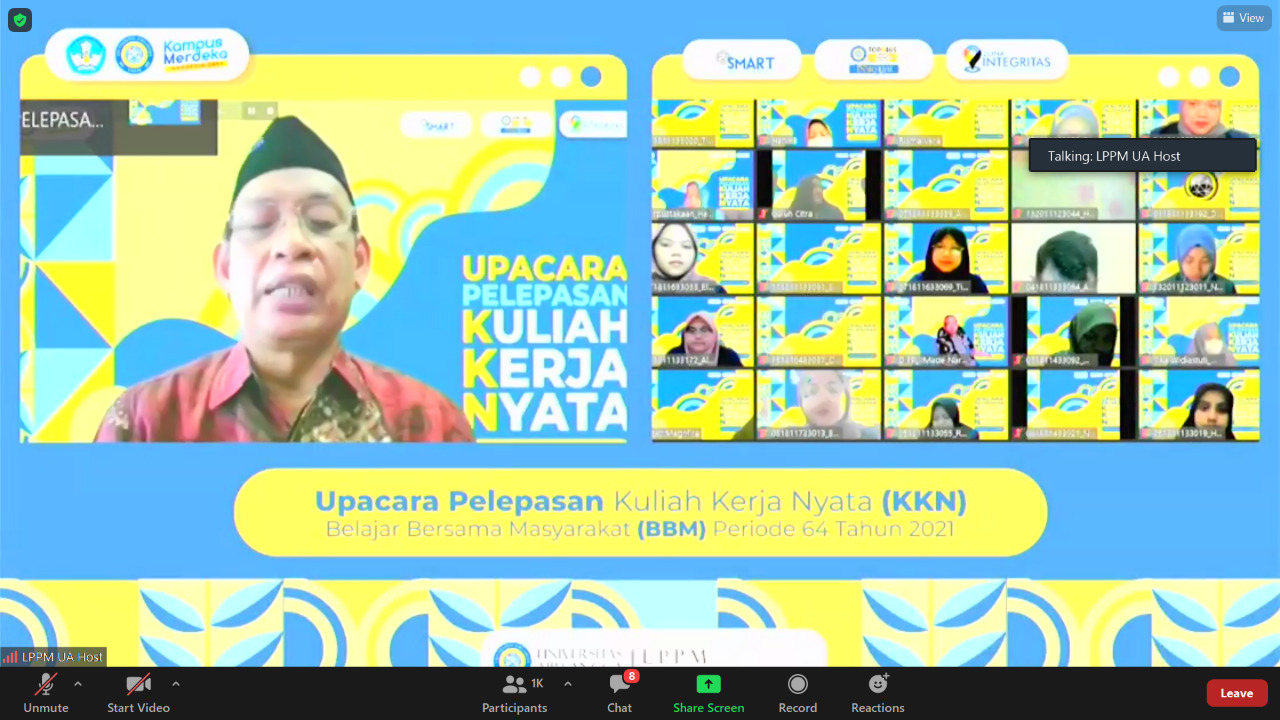UNAIR NEWS – UNAIR Rector, Prof. Dr. Moh. Nasih SE., MT., Ak., officially released 2,600 participants of the 64th Community Service Program (KKN) Universitas Airlangga (UNAIR) on Monday (26/07/2021). The 64th KKN BBM lasted until Friday, August 20, 2021, will be carried out in a blended method by prioritizing health protocols. The four service areas for this year’s KKN are health, education, environment, and community empowerment.
Dr. Gadis Meinar Sari, dr., M.Kes, as Head of UNAIR Research and Community Service Institute (LPPM), said that 133 field supervisors would accompany 2,600 students. Participants of the 64th KKN BBM (Community Service Program – Learning with Community) are spread across 21 provinces, 72 regencies/cities, including Kuala Lumpur and three other cities in Malaysia.
“A total of 1,472 64th KKN BBM participants got vaccinated. And 500 other participants around Surabaya have also got vaccinated at the Airlangga Convention Center last Saturday and Sunday,” explained Dr. Gadis.
All of the 64th KKN BBM activities are connected to e-learning. This 64th KKN BBM is the first time KKN integrated with e-learning, she added.
Prof. Nasih, in his speech, said that the 64th KKN BBM held in this abnormal and emergency needs a lot of adjustment, innovation, flexibility, and creativity, so the KKN could still be done safely, even though the outcome would be different from the previous KKN. The most important thing is safety and good health.
Various kinds of modifications are part of the KKN transformation ahead of the Freedom of Learning and Independent Campus era. According to him, this is the time to make changes and adjustments so that KKN will also become part of the Freedom of Learning and Independent Campus.
“One particular or standard norm doesn’t seem to be enough to give students independence in conducting KKN as well as possible. Therefore, flexibility and adjustment are needed,” he explained.
Prof. Nasih also said that this pandemic requires students to be present in the community to cope with and respond to the impact of the COVID-19 pandemic. The students’ presence is essential in this situation; therefore, KKN must be done with some adjustments.
According to him, the presence of students, spiritually and physically, especially by using the knowledge that solves problems in this pandemic era, needs to be interpreted as a process of KKN. He hoped that students would remain inspired and contribute to the community.
“The most important thing is that we (universities, ed) can build students’ awareness and give the best for their community and environment,” he said.
He emphasized that he did not want UNAIR students to be part of the anti-vaccine or hoax movement as they do not solve problems.
Prof. Nasih also explained UNAIR has five strategic initiatives abbreviated as SMART University for the next five years. In this program, the academic community needs to be life-long learners, anytime and anywhere, including in Community Service Program (KKN).
“Our presence must give meaning to the surrounding community. Strong social awareness, high curiosity, and participation in providing solutions to the community, especially during this pandemic, will be proven in this KKN deployment,” he concluded. (*)
Author: Alysa Intan Santika
Editor: Nuri Hermawan





